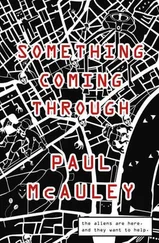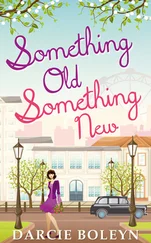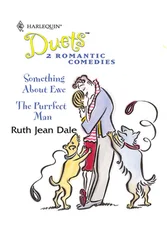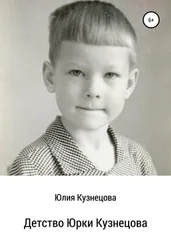Мария Кузнецова - Something Unbelievable
Здесь есть возможность читать онлайн «Мария Кузнецова - Something Unbelievable» весь текст электронной книги совершенно бесплатно (целиком полную версию без сокращений). В некоторых случаях можно слушать аудио, скачать через торрент в формате fb2 и присутствует краткое содержание. Город: New York, Год выпуска: 2021, ISBN: 2021, Издательство: Random House, Жанр: Историческая проза, на английском языке. Описание произведения, (предисловие) а так же отзывы посетителей доступны на портале библиотеки ЛибКат.
- Название:Something Unbelievable
- Автор:
- Издательство:Random House
- Жанр:
- Год:2021
- Город:New York
- ISBN:978-0-52551-191-5
- Рейтинг книги:3 / 5. Голосов: 1
-
Избранное:Добавить в избранное
- Отзывы:
-
Ваша оценка:
- 60
- 1
- 2
- 3
- 4
- 5
Something Unbelievable: краткое содержание, описание и аннотация
Предлагаем к чтению аннотацию, описание, краткое содержание или предисловие (зависит от того, что написал сам автор книги «Something Unbelievable»). Если вы не нашли необходимую информацию о книге — напишите в комментариях, мы постараемся отыскать её.
Something Unbelievable — читать онлайн бесплатно полную книгу (весь текст) целиком
Ниже представлен текст книги, разбитый по страницам. Система сохранения места последней прочитанной страницы, позволяет с удобством читать онлайн бесплатно книгу «Something Unbelievable», без необходимости каждый раз заново искать на чём Вы остановились. Поставьте закладку, и сможете в любой момент перейти на страницу, на которой закончили чтение.
Интервал:
Закладка:
Yuri gives them a faint wave. “The whole gang is here,” he mutters, but he does not look entirely displeased. And then he squeezes my hand. Before I have time to say anything else, the curtain falls and I realize the show is going to start on time. Natasha has refused to tell me much more about the play than she did when she first invited me to see it; all I know is that it’s personal to her, and that she hopes I like it.
When the curtain opens, I don’t believe what I’m seeing. Natasha stands onstage with a long braid in her hair and books under her arms. She looks right at the audience, and in the faintest Russian accent, she begins to speak.
“Leave Kiev?” she says, to no one in particular. “Tell me, how can I leave Kiev? Kiev is the only city I have ever known. The Nazis, at least they are a known evil, but who knows what will happen in the mountains….”
I gasp and put a hand to my mouth. Can it be true? Natasha appears to be playing a young version of me. Yuri squeezes my hand and says, “I hope you like it,” confirming my suspicions. But I’m not so certain I do like it. My granddaughter looks comical up there, like a child playing with her mother’s makeup, and I can’t help feeling like I’m being mocked.
Then the lights flicker and she runs in circles to strange music and when they return, she is transformed into my grandmother. She wears the white boa and the frilly hat and coat and though she did not have time to put on more makeup, she looks all dolled up now, indeed different from the girl she had played moments ago. It is something unbelievable—truly! How could the girl not tell me? How could she hide it from me all summer long—how dare she put my story onstage for strangers to scoff at?
“Leave Kiev?” this old-woman Natasha asks again, her voice heavy with disbelief. “I almost left Kiev during the Revolution. This is different, I suppose….”
I am angry, I am ecstatic, I am captivated. Who could believe it? The family boards the train, where there is hardly any talk at all, just rattling and whooshing and younger Natasha talking to her parents and sister. But only when the train arrives do I realize that the Orlov family has been cut out of the picture, there is no second set of parents and no brothers, which seems to miss completely the point of my story. I know it can be difficult to embody many personages during a one-woman show, but without the Orlovs, my story of the mountains means nothing, or that is what I have believed up to this point. I suppose I should not blame the girl for cutting back on them for the sake of simplicity. It is difficult to make room for all the people in our lives. But most of the stories I have painstakingly told without knowing their purpose have been thrown out the window. Yuri keeps looking at Natasha and then back at me, watching my expression.
“It’s fine,” I tell him. “I’m fine.” He begins to relax slightly, though I am still bewildered.
We have already begun to settle into our mountain apartment, and Grandmother Natasha flails her boa around and complains while scrawny me tells her it will all be fine. The parents leave for work, me and Grandmother Natasha are alone, and we bond over stories about the glory days of Imperial Russia, and she even teaches me a bit of French. My stage self’s relationship with her grandmother is far warmer than I could have ever hoped for. And then, in comes Licky—or, rather, a stuffed version of my dear family bobcat, who just sits there, accepting his fate. That is where Polina comes in and has her shining moment. And as Natasha twirls around, impersonating my gorgeous, ailing sister, I am no longer mad at her, and I get caught up in her spell—truly, she looks just like her, and it makes my heart curdle. I feel faint. I want to embrace her. I want her to run off. I want to tell her how sorry I am. I never want to see her again. Natasha lingers on the role of my sister for far too long, in my opinion. Who needs to see Polina’s transformation from a beautiful girl to a cynical, stony woman? What a sweet relief when she turns into me again!
Though I was nervous for the girl at first, noting some uncertainty, some chaos in her movements, she begins to hit her stride after the cold winter, when she clutches at her stomach and moans for food, worrying over my sister’s condition with more love and understanding than I was ever able to give my own blood. I do not even know how long I have been holding Yuri’s hand. Did I reach out to him for comfort, or did he anticipate that I needed some and reach over to me instead, the poor boy?
You know the rest—a touch of starvation, a crescendo of cold nights, long days at the factory for my father, the poor kitty boiled in a stew by my stern mother, another overlong monologue by my gorgeous sister, who seems to never want to get offstage, my father dies, and then Grandmother and I are at the market, where we happen to hear that the war is over, it’s time to go home, which is not exactly how it happened, but then, there she is, holding my hand, preparing to fall to her death. “My train,” Grandmother Natasha says, looking off into a dim, unknowable future. “My train. That’s my train. My train is coming for me at last.” And then I close my eyes, because I do not want to relive my own grandmother’s death, but after a moment I open them, because I sense that nothing’s happening.
My grandmother is staring up at the ceiling, at an imagined sky, where the lights behind her turn pink and purple to imply that the sun is setting. “Will you look at that?” she says, to all of us. Then the stage goes black as we hear the rumbling of a train, followed by a crash and a scream. My grandmother is dead. The curtain falls. The play is over. I can feel my heart beating in my throat.
She gets a standing ovation from the few dozen people who have turned up, and Yuri and I rise to join them. The business was a bit messier than her other shows, less polished than her long-ago Karenina knock-off, but who could blame her, having done this all on her own, as a new mother at that? Her performance was a bit rough around the edges—yes, she stuttered a few times, forgot her lines a time or two—but it had more soul than all of the work I had ever seen her do put together, though I may be biased, of course. I clap as loud as the youth in the audience, and my face flushes with pride. Natasha returns to the stage, glowing as the audience stands. I hope the girl feels the good work she has done, I truly do. I hope she is not discouraged by the half-empty seats.
So far, she is still smiling, glowing from her success. And then Stas emerges from backstage, where he has been helping out, and is clapping for her, wildly. And once more, I am hit with another surprise. When the two of them look at each other, I feel as if I have been slammed over the head with a pot of Stroganoff. How did I not see it all along? Her gleaming eyes and enhanced makeup, his wild, desperately not-homosexual visage—how did I not see that these two were as entangled as me and Ivan Dolgorukov, a bureaucrat who visited me on the sea from time to time, always leaving me with another shiny bauble to remember him by, even if it would be indiscreet to wear it?
First, the fact of her putting on a play based on my story—and now this. Too much for this old woman to bear.
My cheeks burn with shame. Of course I have missed this, along with so many other things that were right in front of my nose. The fact that Licky was being fattened up for the slaughter for all those months. Bogdan’s nighttime affairs. And perhaps that I had once been the true object of his affections, though he told me so plainly. And what else? That my sister had needed me, and I had failed her. But what can I do about any of that now?
I glance at Yuri, who continues to clap with an unreadable look. Is he excited for Natasha? Disappointed about the crowd? Or is his soul crushed by a much larger disappointment?
Читать дальшеИнтервал:
Закладка:
Похожие книги на «Something Unbelievable»
Представляем Вашему вниманию похожие книги на «Something Unbelievable» списком для выбора. Мы отобрали схожую по названию и смыслу литературу в надежде предоставить читателям больше вариантов отыскать новые, интересные, ещё непрочитанные произведения.
Обсуждение, отзывы о книге «Something Unbelievable» и просто собственные мнения читателей. Оставьте ваши комментарии, напишите, что Вы думаете о произведении, его смысле или главных героях. Укажите что конкретно понравилось, а что нет, и почему Вы так считаете.












